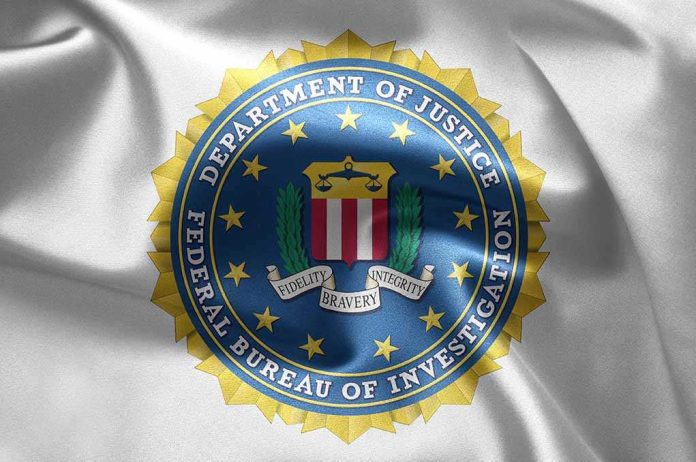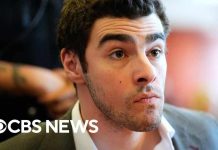
When a former FBI director stands trial for perjury and obstruction at the urging of a sitting president, the line between justice and political vendetta is not just blurred—it is redrawn in real time.
Story Snapshot
- James Comey, ex-FBI director, indicted on perjury and obstruction charges related to his 2020 congressional testimony.
- Comey pleads not guilty and demands a jury trial, calling the case politically motivated.
- The indictment follows repeated public pressure from Donald Trump and a sweeping overhaul of DOJ leadership.
- The case tests the independence of federal prosecutions and the boundaries of executive power over law enforcement.
The Indictment Heard ‘Round the Beltway
The Justice Department’s indictment of James Comey did not arise from a cold case file or an unexpected whistleblower. It was the culminating act in a years-long political drama. The charges—making a false statement and obstructing a congressional proceeding—stem directly from Comey’s 2020 testimony, where he denied authorizing leaks about the FBI’s Russia probe. This was not the first time Comey’s words under oath faced scrutiny, but it is the first time a grand jury moved to indict. The move followed a summer of direct pressure from Donald Trump, who repeatedly called for Comey’s prosecution after new documents surfaced at FBI headquarters. Trump’s allies in the DOJ, installed after a rapid-fire purge of senior officials, moved quickly to deliver what the president demanded.
The spectacle of a former FBI director arraigned in federal court on criminal charges marks a first in modern American history. Comey, flanked by his legal team, calmly entered a plea of not guilty in Alexandria, Virginia. His statement outside the courthouse was brief but pointed: “I am innocent, so let’s have a trial, and keep the faith.” As the cameras rolled, the gravity of the moment was impossible to ignore. The Department of Justice, now led by Attorney General Pamela Bondi—a Trump appointee—insisted that “no one is above the law,” while Comey’s defense called the prosecution a dangerous escalation of political revenge.
Political Motives and Power Struggles Define the Case
The circumstances surrounding the indictment are as significant as the charges themselves. The DOJ had previously reviewed Comey’s actions under both Trump and Biden, each time declining to prosecute for lack of evidence. The 2025 reversal followed a reshuffling of key posts: U.S. attorneys replaced by Trump loyalists, internal dissent quashed, and an explicit mandate to revisit old battles. Critics, including former prosecutors and DOJ veterans, warn this sets a precedent where the threat of prosecution hangs over any official who crosses the wrong political wires. Supporters, however, claim it’s overdue accountability for the perceived abuses during the Russia probe. The trial is now poised to become a referendum not just on Comey, but on the legitimacy and independence of federal law enforcement in a hyper-partisan era.
The grand jury’s decision to indict came only weeks after the DOJ’s new leadership took over, suggesting a direct line between presidential will and prosecutorial action. Legal observers point out how rare it is for perjury and obstruction charges to reach this level, especially regarding testimony before Congress. Comey’s defense insists that his testimony was truthful and that the case relies on a selective reading of ambiguous statements. Meanwhile, Trump’s public celebrations—praising Bondi and Halligan for “doing what others wouldn’t”—only highlight the unprecedented nature of executive intervention in criminal prosecutions.
What’s at Stake for American Justice and Political Order
The immediate impact is a deepening of the nation’s political fissures. Republicans frame the indictment as long-overdue justice; Democrats and many legal experts see it as a warning shot against independent law enforcement. The Department of Justice, already bruised by years of partisan warfare, now faces questions about its credibility and future direction. The legal community—judges, prosecutors, and academics—debates whether the prosecution is sound or a dangerous abuse of power. The case will almost certainly define new boundaries for executive authority over federal investigations, with both Congress and the public watching every move for signs of fairness or favoritism.
The trial’s outcome could ripple far beyond Comey and his family. If convicted, a new precedent is set for prosecuting former officials over congressional testimony—one that may haunt future administrations. If acquitted, the episode may embolden critics who see the DOJ as a tool for vendettas. For the intelligence and law enforcement communities, the stakes are existential: trust in their independence is on trial alongside Comey himself. As the legal process unfolds, the world will see whether America’s justice system can withstand political stress—or whether, in this new era, every prosecution risks becoming a political purge.



